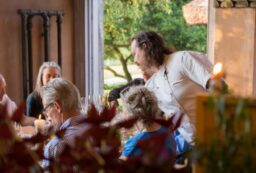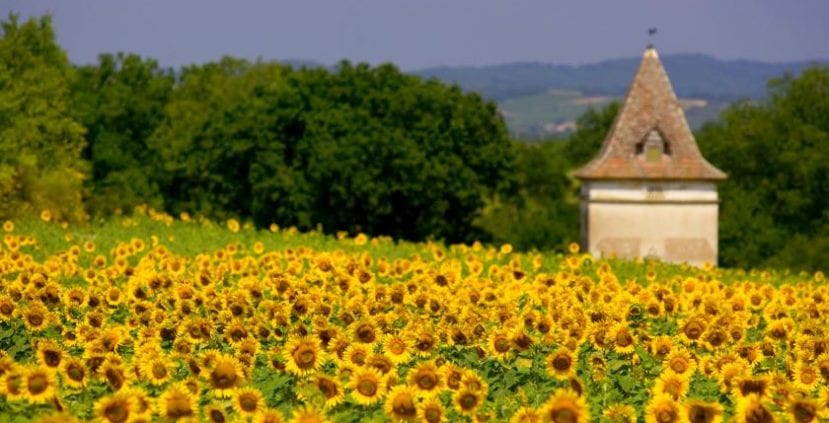
Domaine de Perches, the ultimate restoration project, a 17th Century wine Chateau gloriously reborn, is everyone’s dream home. There is a welcoming grandeur to the light filled drawing rooms, an enviable elegance to the decor. From the decking by the pool, guests gaze out over five hectares of vineyards towards the distant Montagne Noire.
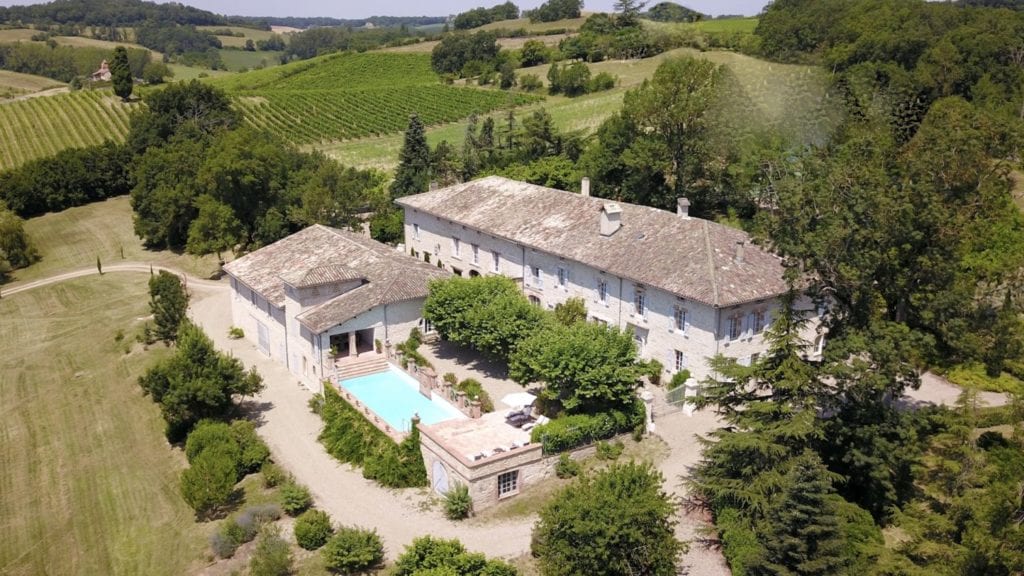
Alain and Howard, on their third French property renovation, have elevated the Chambres d’hôte concept to a higher plane. They call it a Boutique Hotel but it is an intimate experience beyond that.
At Domaine you are a guest, almost a long lost friend, at a very civilised house party. If you need the reassurance of check-in, a mini-bar, key cards, a flat-screen TV, a telephone room service and a trouser press then this oasis of Gallic charm is not for you. But if you want two hosts who know the region, it’s people and it’s wines, the terroir and it’s produce, then Domaine may well be a perfect choice.
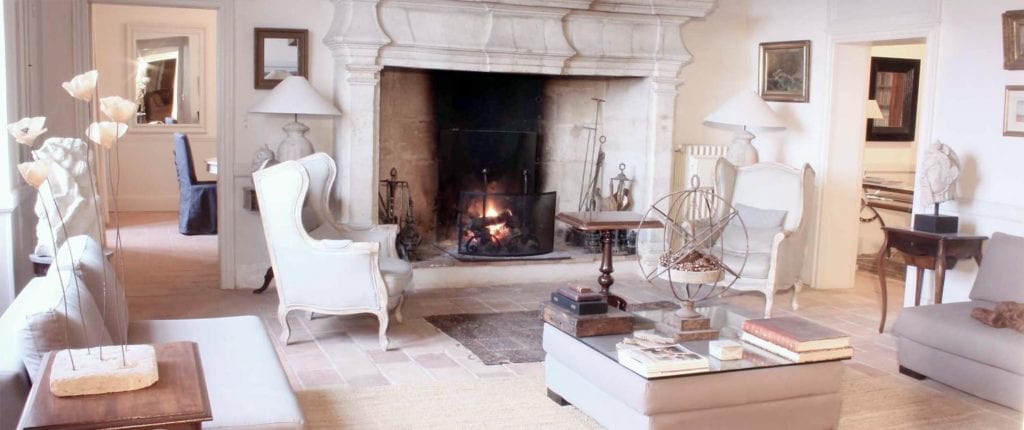
If you wish, Alain or Howard will show you round what was a restoration project on a epic, heroic scale. “You could see the stars, there were holes in the roof,” says Howard as we stand at the heart of the house. Serious problems below too. “A demolition expert decided that if we removed the six concrete wine vats the house would come tumbling down,” Howard admitted ruefully. So, the house flows around, up and over the vats.
"At Domaine you are a guest, almost a long lost friend, at a very civilised house party."
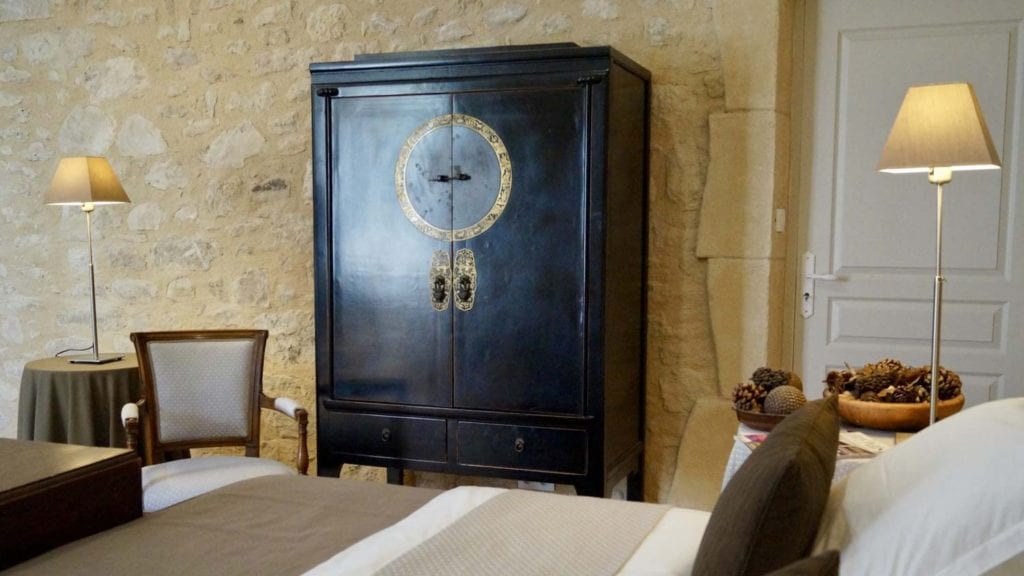
Six years ago, as the rooms were refurbished, they were named in honour of France’s wine heritage: Mauzac, Malbec, Sauvignon, Syrah and so on. Now in total there are 11 rooms. To stay at Domaine de Perches is to become an honorary French citizen, to understand the people and their ways. For a few precious days guests feel like locals.
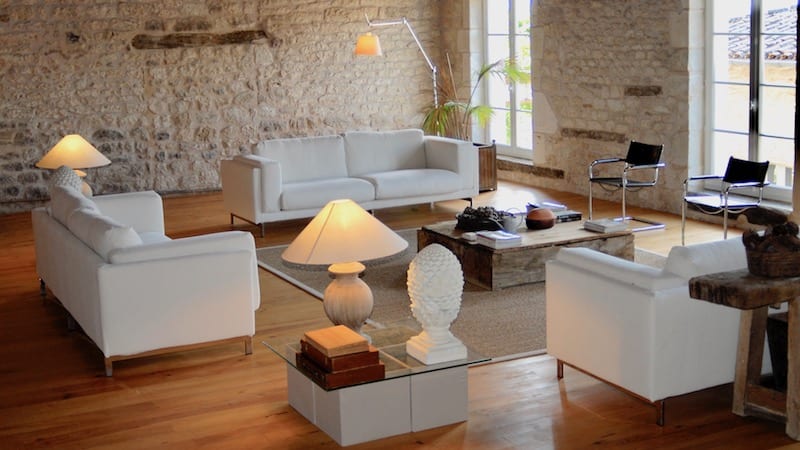
There is no menu. Howard checks on guest’s allergies and dislikes before producing a four course meal that reflects both local specialities and the seasons. “I eat very little meat,” says Howard, so vegans are welcome. “Have you heard about the Truffle Wars in Cordes?” asks Howard as we met for pre-dinner sparkling wine and canapés. “It was like a scene from Manon de Sources.”
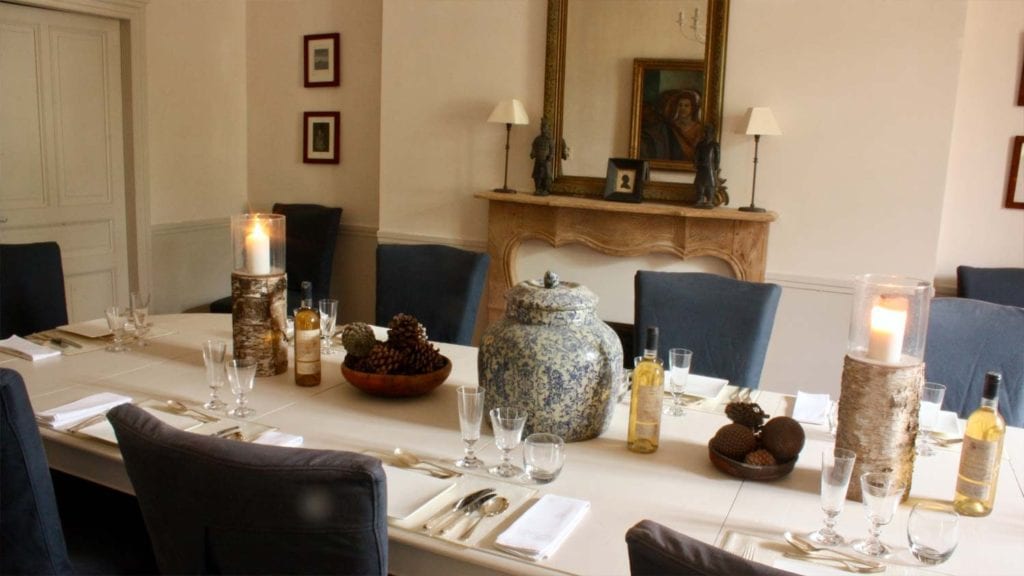
Pouring a local Pinot Noir, to accompany seared veal, Alain advises of the wine’s provenance. “In 1890 a geologist noted that the soil and climate locally were identical to that of the Pinot Noir region. Recently, when a hurricane destroyed the vines, a local vigneron recalled that report and planted the Pinot Noir grape.”
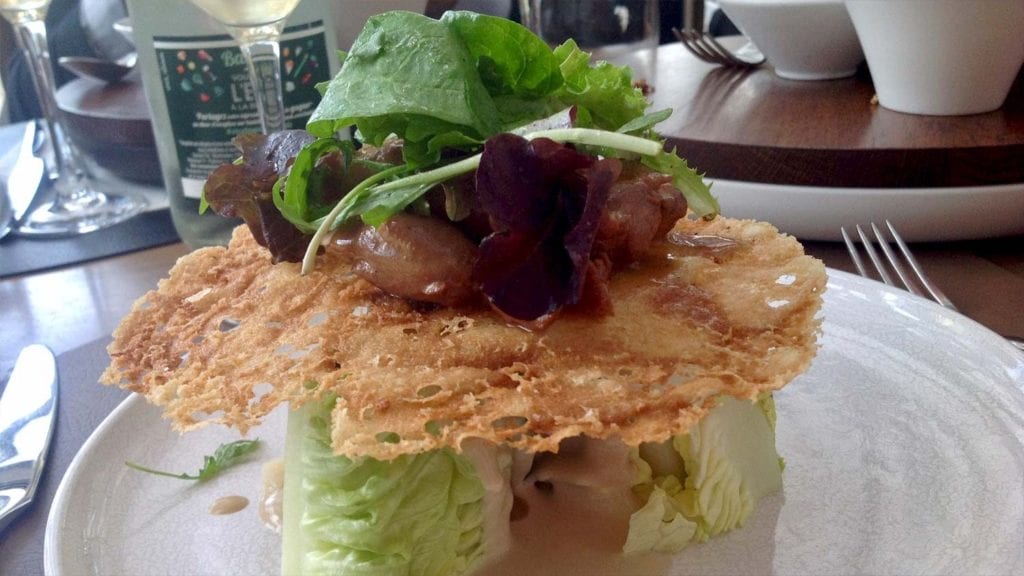
Alain and Howard, from Oran (Algeria) and Sheffield respectively, are the outsiders who have become insiders. They talked through their plans with the local Notaire to convert the the wine pickers’ rough-stoned rustic dormitory into two sophisticated de luxe suites. They have come to appreciate the rich terroir from which not just five hectares of vines flourish but also apricots, cherries, figs, olives and pears.
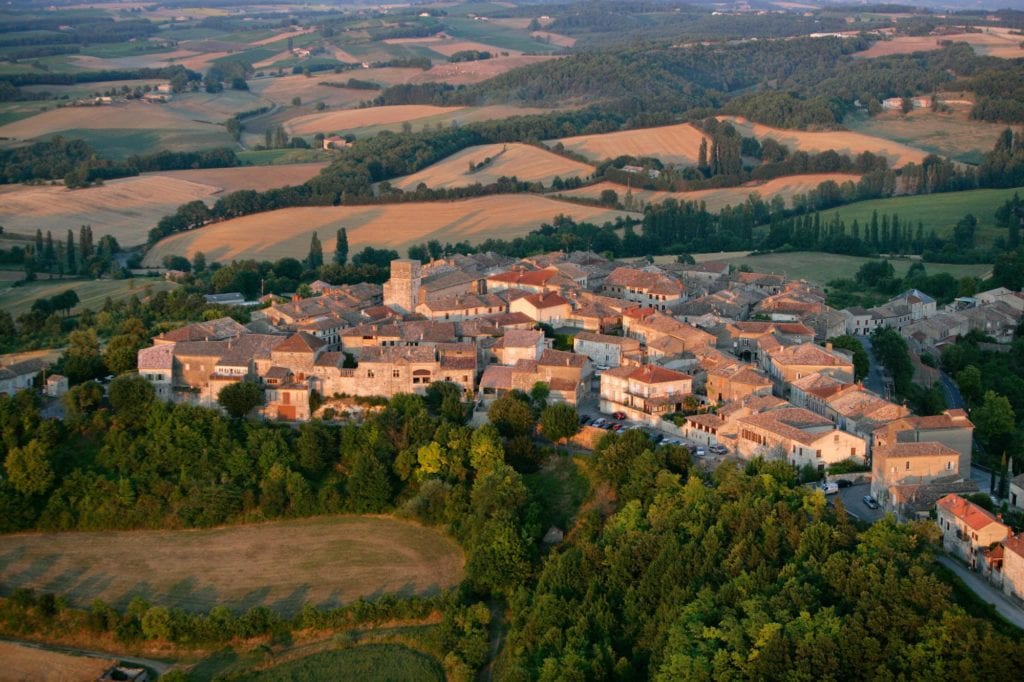
“The people have so much pride in the terroir which their family have nurtured for generations. it is impossible to define terroir in just a few words. Land, earth, terrain or soil – none of those words are enough,” says Howard as he provides a plate of asparagus covered with a thin cut of salmon. “The people have an almost spiritual reverence for their relationship with the land.”
That respect drives a food renaissance. At the May Day fair, in nearby Gallic, there were over thirty varieties of tomato for sale. For centuries the triangle between Toulouse, Albi and Carcasone was known as “Le pays de Cocagne.” The pastel blue dye of woad made this “The land of plenty.” Pale blue wooden shutters recall affluent times. One historic day in 1404 thirteen ships landed boatloads of the dye in Bristol.
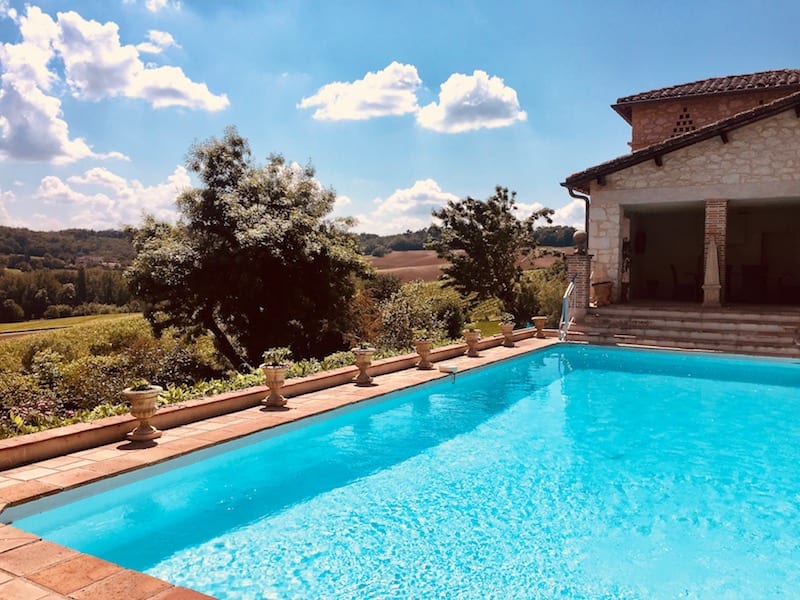
As Alain and Howard dine with you, they reveal the past, present and maybe future of this beautiful land. Whilst Howard excuses himself to present a pear and cherry tart or a dessert of strawberry ice-cream and raspberries, Alain talks of the vineyards. “It was better for the grapes when the vines were pruned by hand,” he says reminiscing of the days before automated harvests. But he is excited by the prospect of solar panels powering the wine-presses. Every dinner is an alluring mix of exquisite food, snippets of local gossip, superlative Gaillac wines and sound advice.
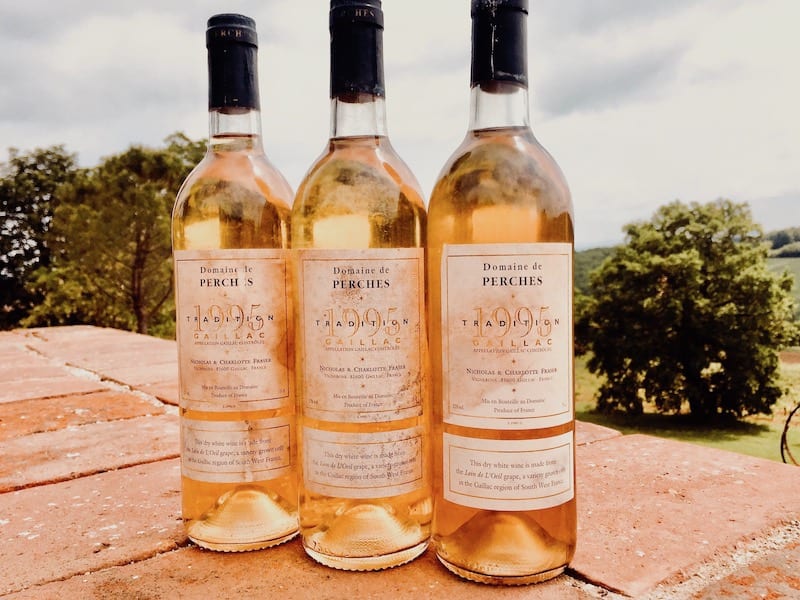
“The starter is a local goats cheese with pear and walnut … some of the local winemakers are not replacing their old vines as quickly as they should … generally there are very few Rose wines around here but this one is rather good … stop for coffee in the medieval square at Castelnau de Montmiral … officially it is one of the plus beaux villages de France.”
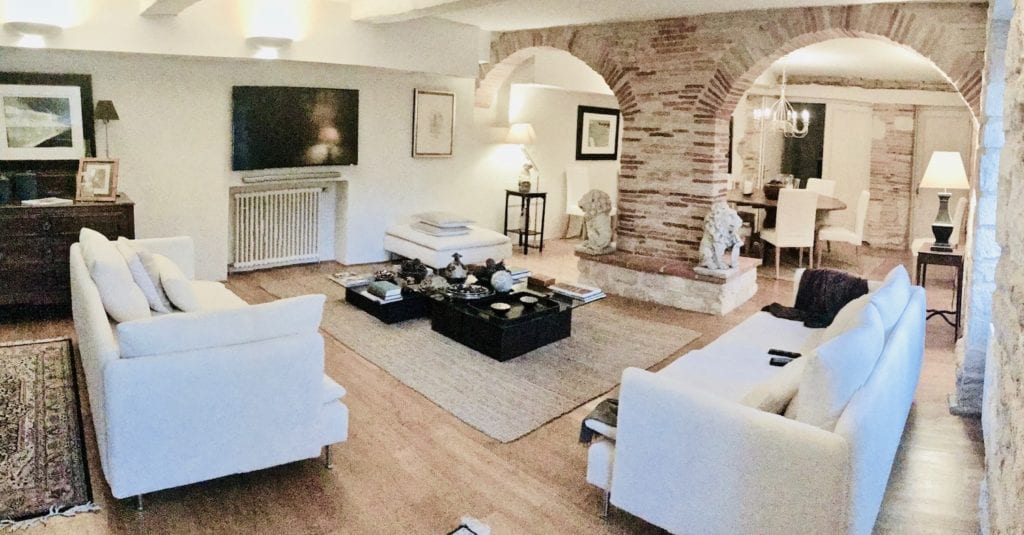 France has over 700 bastide villages, medieval fortified villages. But hill-top villages overlooking the emerald Tarn Valley have a special splendour, particularly Cordes-sur-Ciel which on a misty morning seems to float on the clouds. Six years ago Domaine de Perches’ future was uncertain. Only a few rooms had been renovated for residential use, the barn and cellar were dilapidated and the vines were not cared for.
France has over 700 bastide villages, medieval fortified villages. But hill-top villages overlooking the emerald Tarn Valley have a special splendour, particularly Cordes-sur-Ciel which on a misty morning seems to float on the clouds. Six years ago Domaine de Perches’ future was uncertain. Only a few rooms had been renovated for residential use, the barn and cellar were dilapidated and the vines were not cared for.
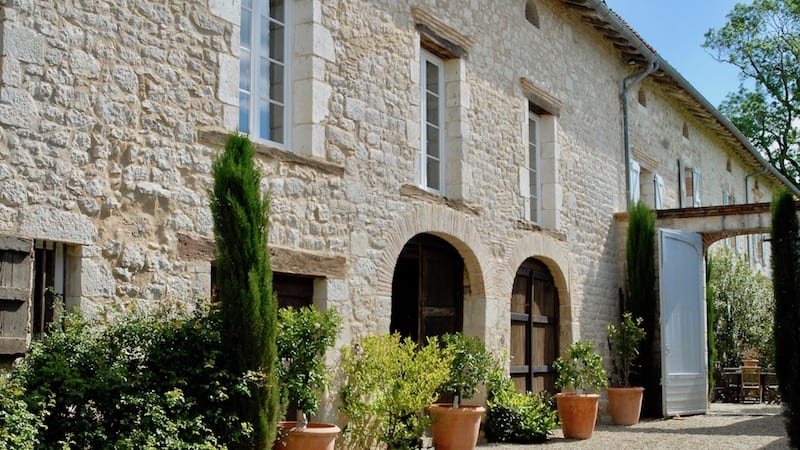 Now, Domaine has been refurbished, renovated and repurposed. With artefacts from its past, a fine wine cellar and stylish design it introduces guests to Galliac’s good life. Visitors arrive with intentions of visiting the Toulouse Lautrec Gallery in Albi, canoeing along the Tarn, hiking through the Gorge and following the Bastides Villages trail. But it is all too easy to slow down to the pace of French rural life. To linger over al fresco breakfast by the pool, to read a few chapters in the Drawing Room, to cut short your explorations for a late afternoon swim …
Now, Domaine has been refurbished, renovated and repurposed. With artefacts from its past, a fine wine cellar and stylish design it introduces guests to Galliac’s good life. Visitors arrive with intentions of visiting the Toulouse Lautrec Gallery in Albi, canoeing along the Tarn, hiking through the Gorge and following the Bastides Villages trail. But it is all too easy to slow down to the pace of French rural life. To linger over al fresco breakfast by the pool, to read a few chapters in the Drawing Room, to cut short your explorations for a late afternoon swim …
“Never mind,” says Alain, “You can always visit Carcasonne, Montauban and the Canal du Midi next time.”







